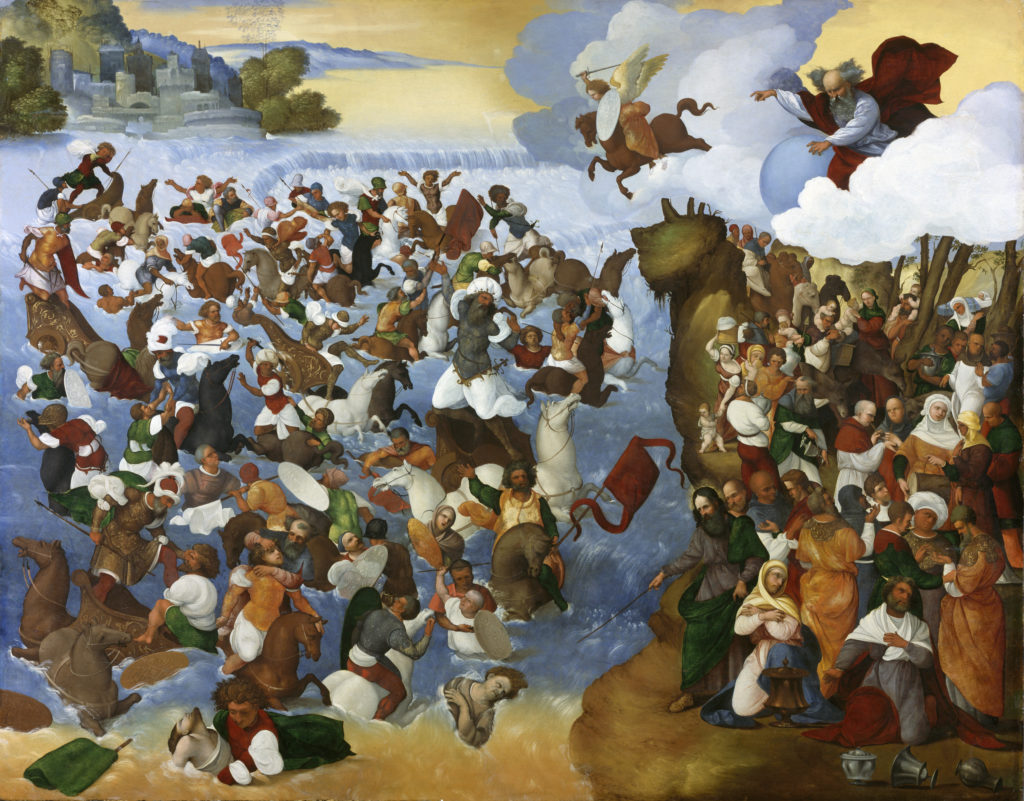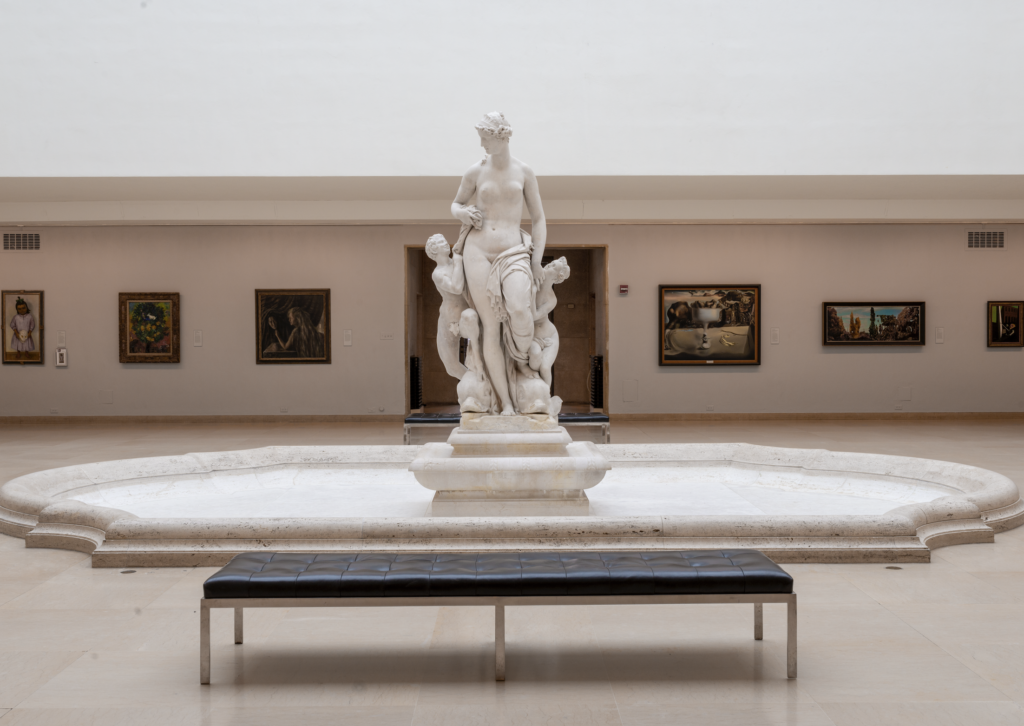THE National Gallery of Ireland has been awarded funding of €25,000 to restore a rare Italian artwork which has been in in its collection for a century.
The Crossing of the Red Sea, painted by Ludovico Mazzolino in 1521, was acquired by the Irish state in 1914.
The biblical artwork is deemed remarkable for its size and rarity and because it departs from the conventional rules of perspective.
But it has not been on display at the Dublin institution for decades due to its “fragile” state.
“In its current fragile state, the painting cannot be safely displayed,” the Gallery confirms.
“With severe delamination of the paint layer and soiling to the cracked surface, The Crossing of the Red Sea requires extensive conservation efforts,” they explained.
Now a funding injection by The European Fine Art Foundation (TEFAF) will see it restored to its former glory and back on display for the public to enjoy.
 The Crossing of the Red Sea, 1521, by Ludovico Mazzolino, was acquired by the Irish state in 1914
The Crossing of the Red Sea, 1521, by Ludovico Mazzolino, was acquired by the Irish state in 1914The cash will allow the gallery to collaborate with experts in Mazzolino’s work to “better understand his artistic practice so that this rare large-scale masterpiece can be sensitively restored and made accessible to the visiting public”, they confirmed this month.
Dr Caroline Campbell, Director of the National Gallery of Ireland, highlighted the importance of the work that will now get underway.
“Ludovico Mazzolino was a prominent painter in sixteenth-century Italy, where he worked for the Este court in Ferrara and later in Bologna,” she said.
“The Crossing of the Red Sea is recognised internationally as an important and rare large-scale example of his work.
“It has been part of the National Gallery of Ireland’s collection since 1914, acquired just 50 years after we opened our doors.
“Unfortunately, due to the fragility of the panel, we have been unable to put it on display for many decades.”
She added: “We are delighted to receive this grant from the TEFAF Museum Restoration Fund, which will enable us to undertake essential conservation treatment on this striking painting and make it possible to return it to our galleries for the enjoyment of our visitors.”
The Wadsworth Atheneum Museum of Art in Hartford, Connecticut, has also received funding from TEFAF this month.
The US organisation will be supported in its restoration of Venus with a Nymph and Satyr, a marble sculpture by Pietro Francavilla dated 1600, which boasts an intriguing history.
Initially, it was commissioned for the gardens of the Villa Zanobi Bracci in Florence, Italy, but in 1750 was sold to Frederick, Prince of Wales, and stored at the royal estates of Kew and Windsor.
In the early twentieth century, the sculpture emerged on the commercial art market and in 1925 was transported to the Fogg Museum, Harvard, to be installed in its Renaissance courtyard.
 Pietro Francavilla's Venus with a Nymph and Satyr (1600), pictured at the Wadsworth Atheneum Museum of Art
Pietro Francavilla's Venus with a Nymph and Satyr (1600), pictured at the Wadsworth Atheneum Museum of ArtHowever, due to its erotic nature, the sculpture was not displayed there and was instead acquired by Everett Austin Jr., the then-director of the Wadsworth Atheneum.
Matthew Hargraves, Director of the Wadsworth Atheneum Museum of Art, said: “Pietro Francavilla’s Venus with Nymph and Satyr is perhaps the greatest Mannerist sculpture in the United States.
“Since 1934, it has been the centrepiece of our landmark Modernist Avery Memorial building.
“We are incredibly grateful for this grant from the TEFAF Museum Restoration Fund to conserve Francavilla’s great marble.
“It will bring this stunning sculpture back to life and return it to pride of place at the very centre of the Wadsworth Atheneum Museum of Art as a symbol of our beloved museum’s renewal.”
The National Gallery of Ireland and the Wadsworth Atheneum Museum of Art are the only recipients of this year’s TEFAF Museum Restoration Fund (TMRF), an annual grant created in support of the international art community’s vital work to preserve artistic and cultural heritage.
Each organisation will receive €25,000 to support their restoration projects.

